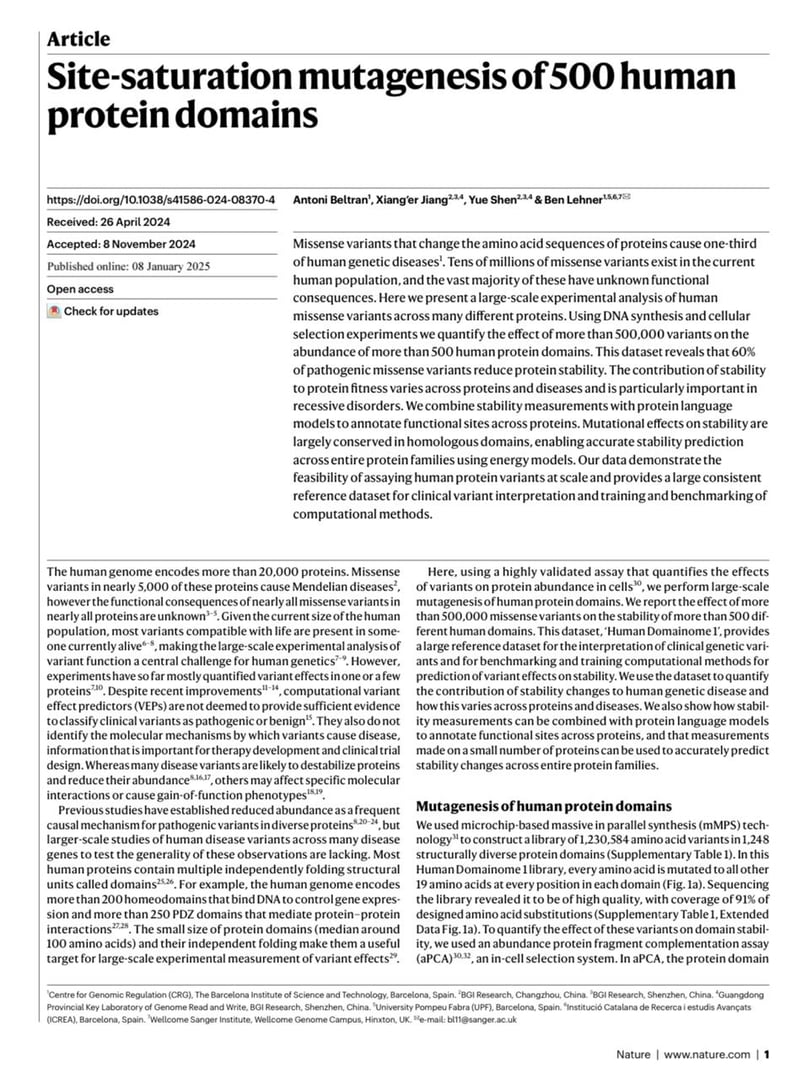Site-saturation mutagenesis of 500 human protein domains
The document describes a study that generated a comprehensive dataset of deep mutational scans for over 1,000 human protein domains, called the "Human Domainome 1" dataset. The key points are: The study used a multiplexed assay called aPCA to measure the effects of saturation mutagenesis on the in vivo abundance and stability of human protein domains. This allowed them to generate sequence-to-stability maps for a large number of domains. The data showed that the effects of mutations on protein stability are largely conserved across homologous domains, allowing the authors to fit thermodynamic models that can predict stability changes for entire protein families. The abundance data was used to identify evolutionary functional sites in the protein domains, many of which were not previously annotated. The stability data was used to analyze the contribution of protein stability to the pathogenicity of clinical variants, showing that destabilizing mutations are enriched in pathogenic variants.


